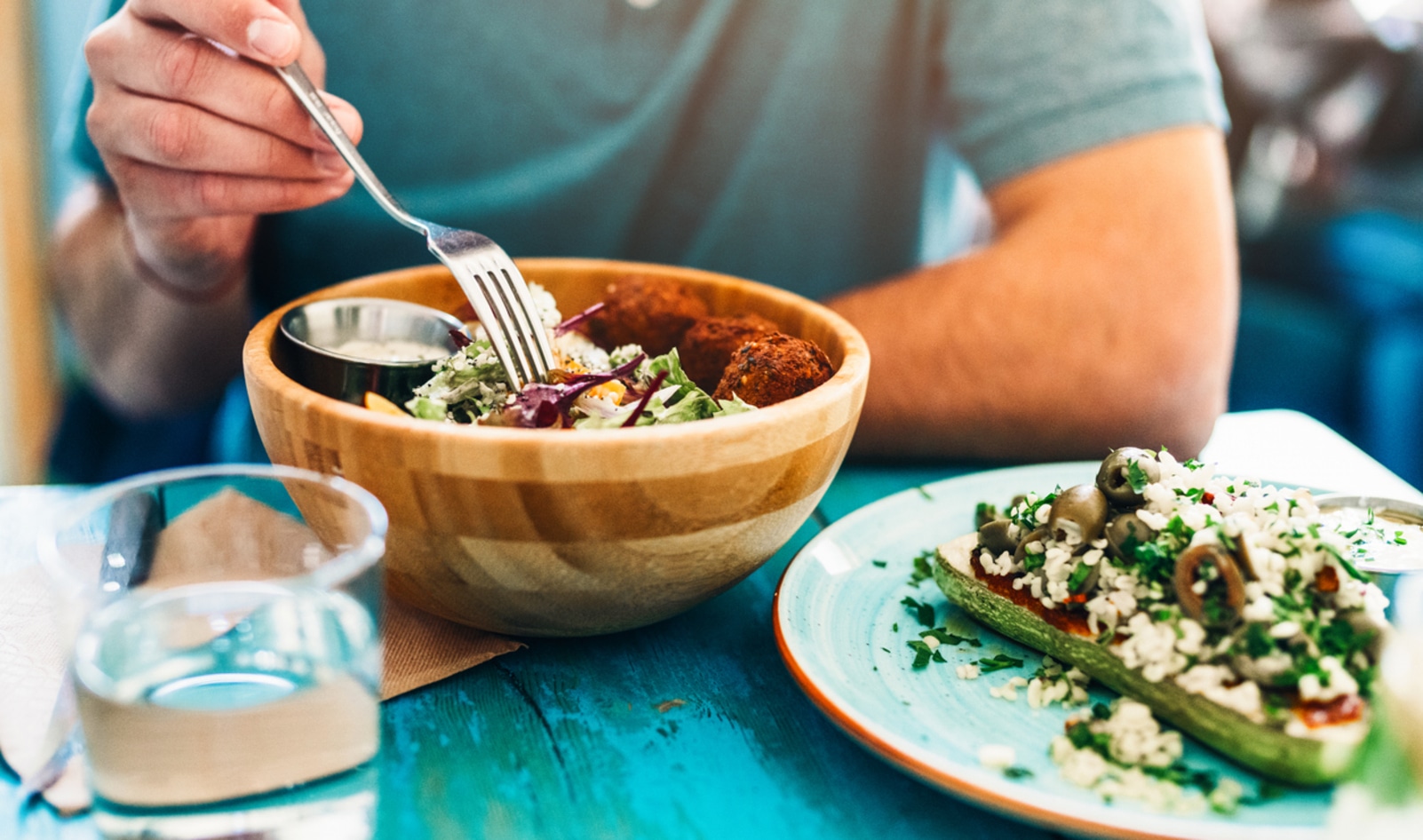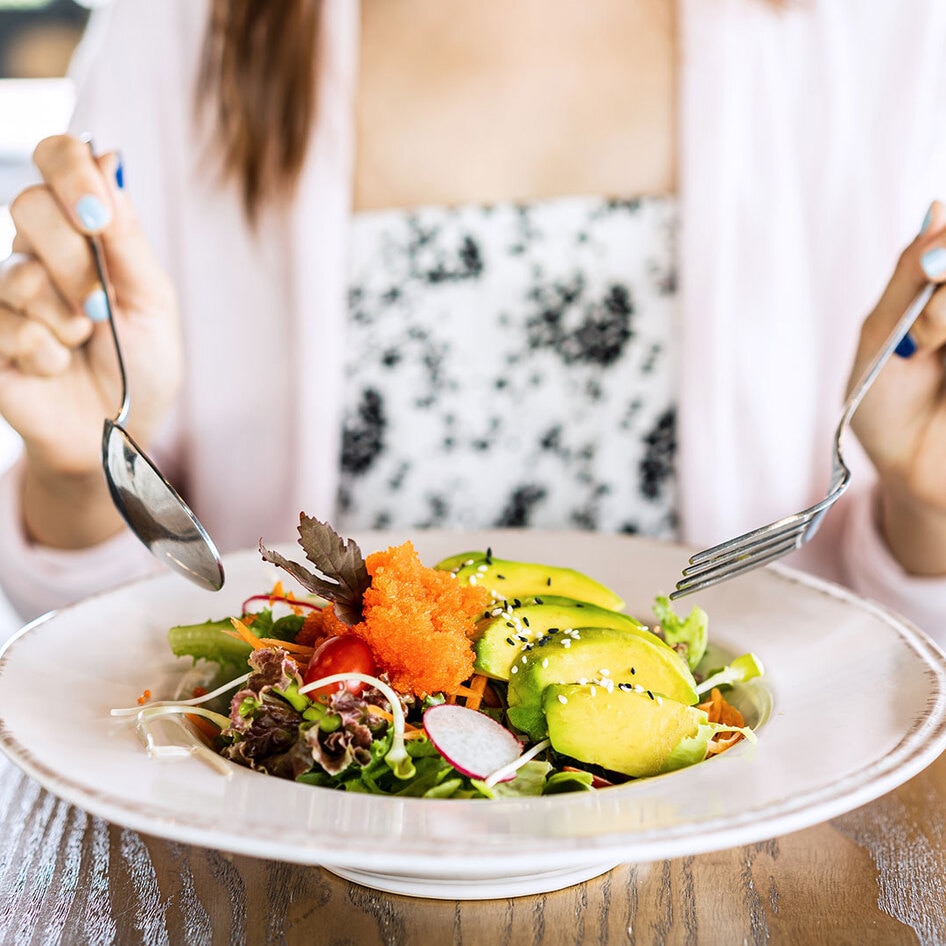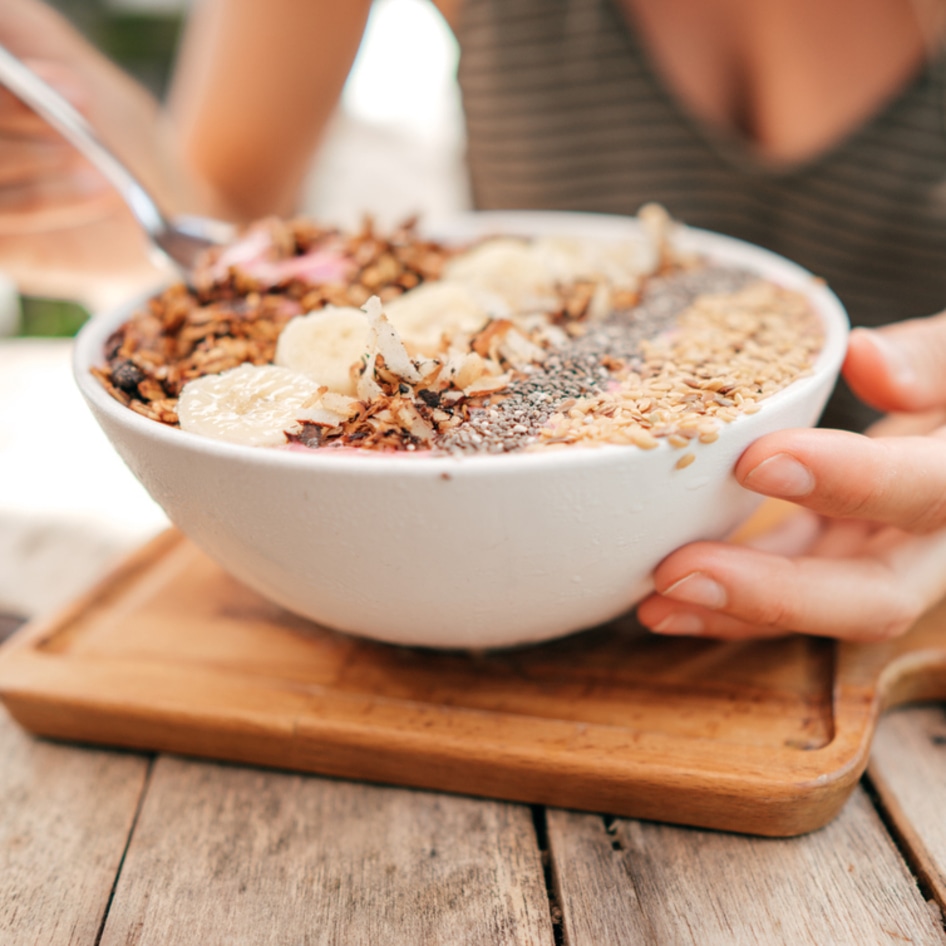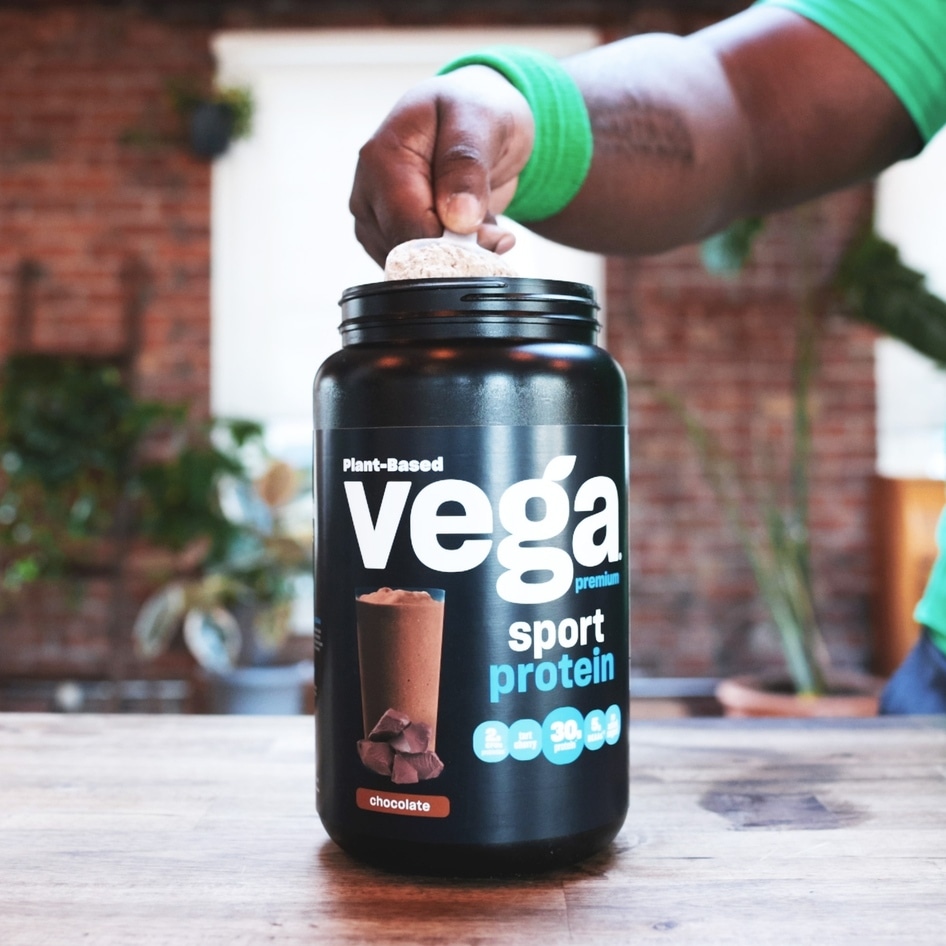While a vegan diet is often associated with weight loss and improved health, gaining weight on a plant-based diet is not only possible but can be done healthily with the right strategies. For those looking to build muscle or recover from being underweight, it’s crucial to focus on nutrient-dense, calorie-rich foods and to combine this approach with proper exercise.
But how exactly do you gain weight on a vegan diet? We asked two nutrition experts for practical insights and tips.
Gaining weight on a vegan diet
A common misconception about vegan diets is that they lack the necessary calories and nutrients to support weight gain. However, with the right strategy, gaining weight on a vegan diet is entirely achievable. The focus should be on nutrient-rich, high-calorie foods that also provide a balanced profile of macronutrients—protein, carbohydrates, and fats.
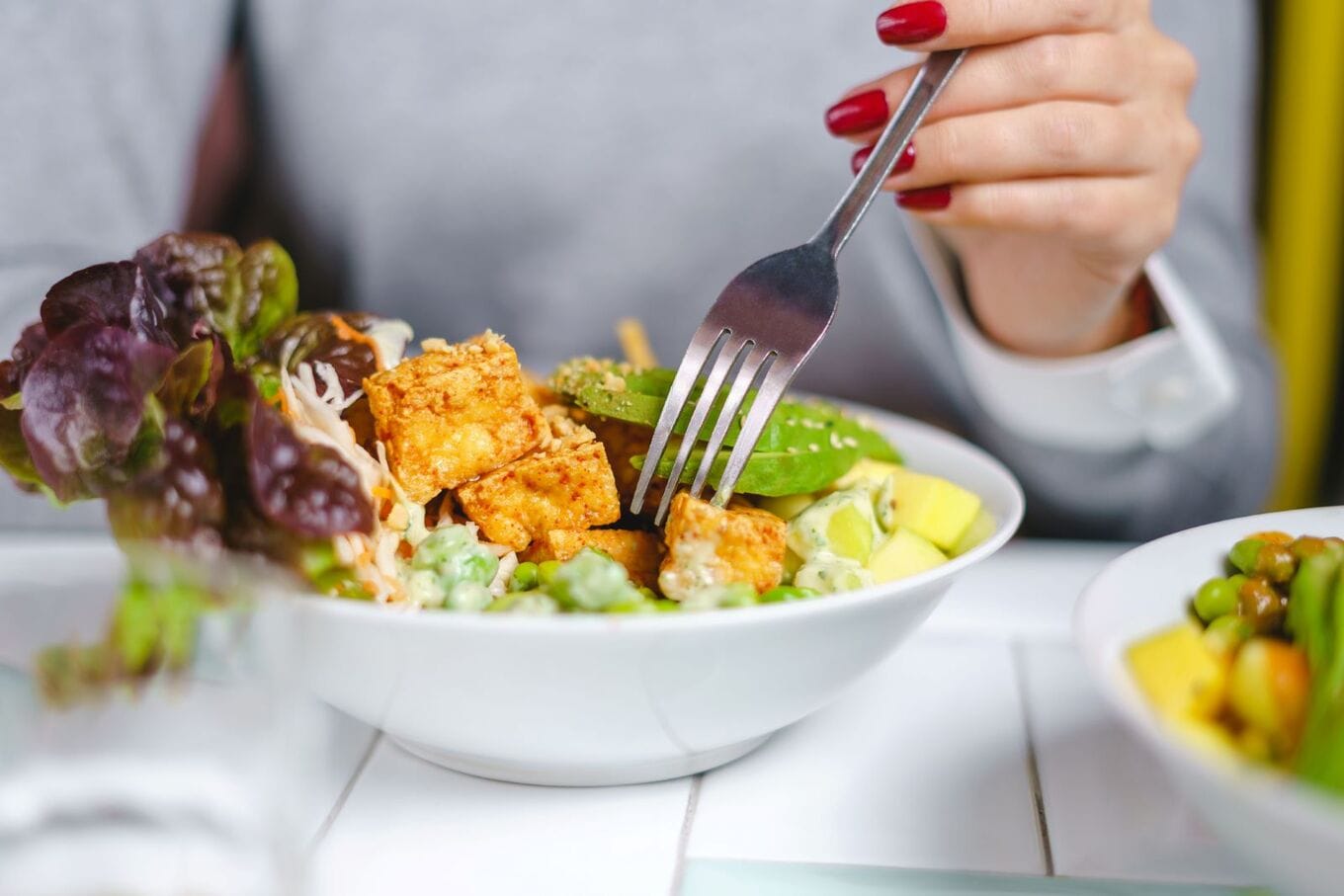 Getty
Getty
Michael Lahey, MD, a physician specializing in nutrition and wellness, explains that incorporating a variety of nutrient-rich foods is crucial for healthy weight gain.
“To gain weight on a vegan diet, it’s essential to focus on calorie-dense, nutrient-rich foods such as nuts and seeds, nut butter, avocados, whole grains, dried fruits, and legumes,” Lahey tells VegNews.
Renato Fernandes, a clinical nutritionist with expertise in clinical nutrition, metabolism, and sports nutrition, says his favorite calorie-dense foods are nuts and seeds, which are also rich in micronutrients such as magnesium and zinc.
How do you add more to your diet? “You can add crunch to your meals, or if you’re making a smoothie, you can add a wide range of nutrients as well as calories,” Fernandes tells VegNews.
6 Tips for gaining weight on a vegan diet
For those looking to gain weight on a vegan diet, Fernandes and Lahey offer six expert tips to help you reach your goals.
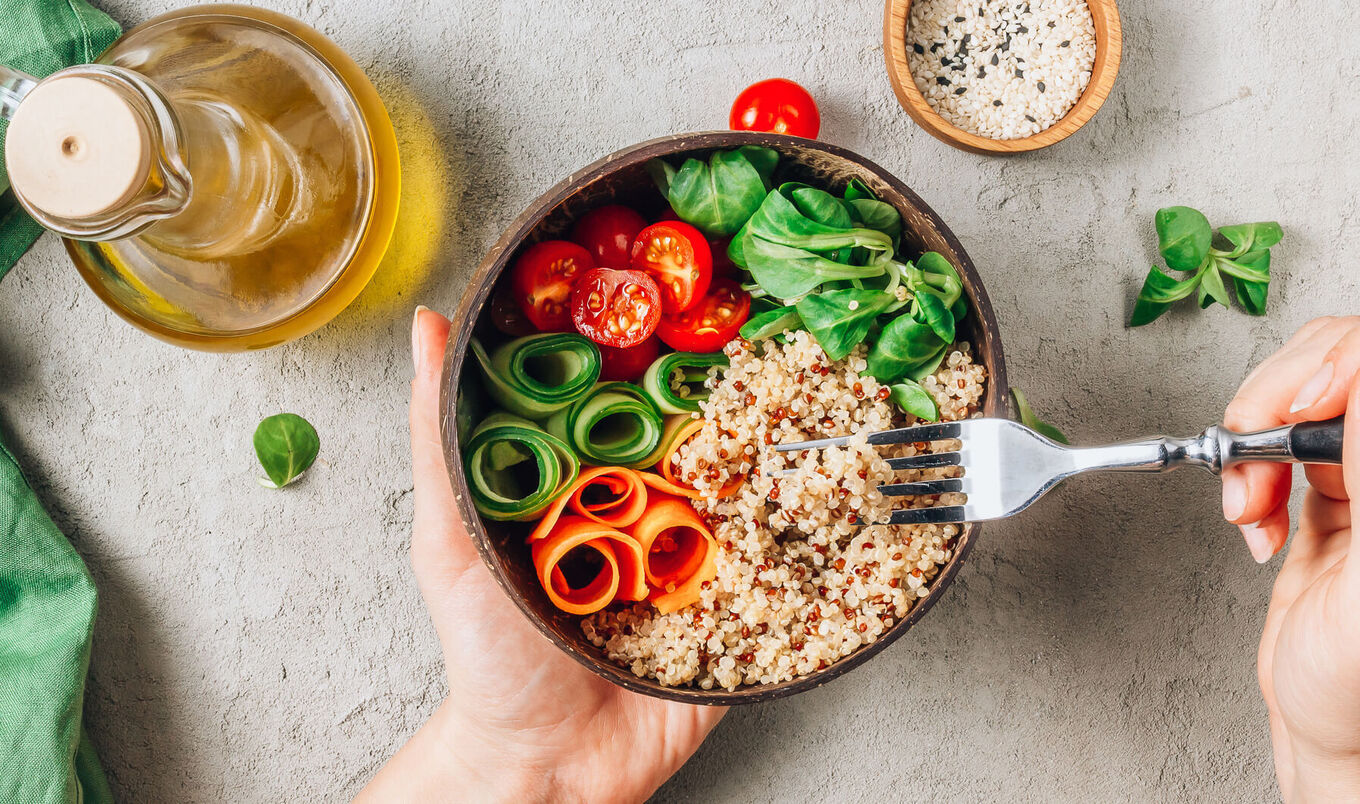 Julia Mikhaylova
Julia Mikhaylova
1Prioritize high-calorie, nutrient-dense foods
Both experts agree that the foundation of a weight gain diet should include calorie-dense foods that are also rich in nutrients. Fernandes highlights the importance of including a variety of nuts and seeds, avocados, and legumes in your diet.
“Quinoa and legumes are a couple of serious weight-lifters for vegans who want to hit the iron in a healthy way,” Fernandes says. “Quinoa is a complete protein—it has all the nine essential amino acids and also lots of fiber and iron.”
“ Lentils, chickpeas, and black beans are no slouches in the calorie department either,” he says.
Lahey suggests incorporating a range of foods such as dried fruits, whole grains, and nut butters to further boost calorie intake. “Dried fruits such as raisins, dates, figs, and apricots are rich in nutrients and act as energy sources as well as sources of antioxidants,” Lahey says.
Another benefit of whole grains such as quinoa, brown rice, oats, and whole wheat pasta? They provide essential nutrients such as iron and B vitamins.
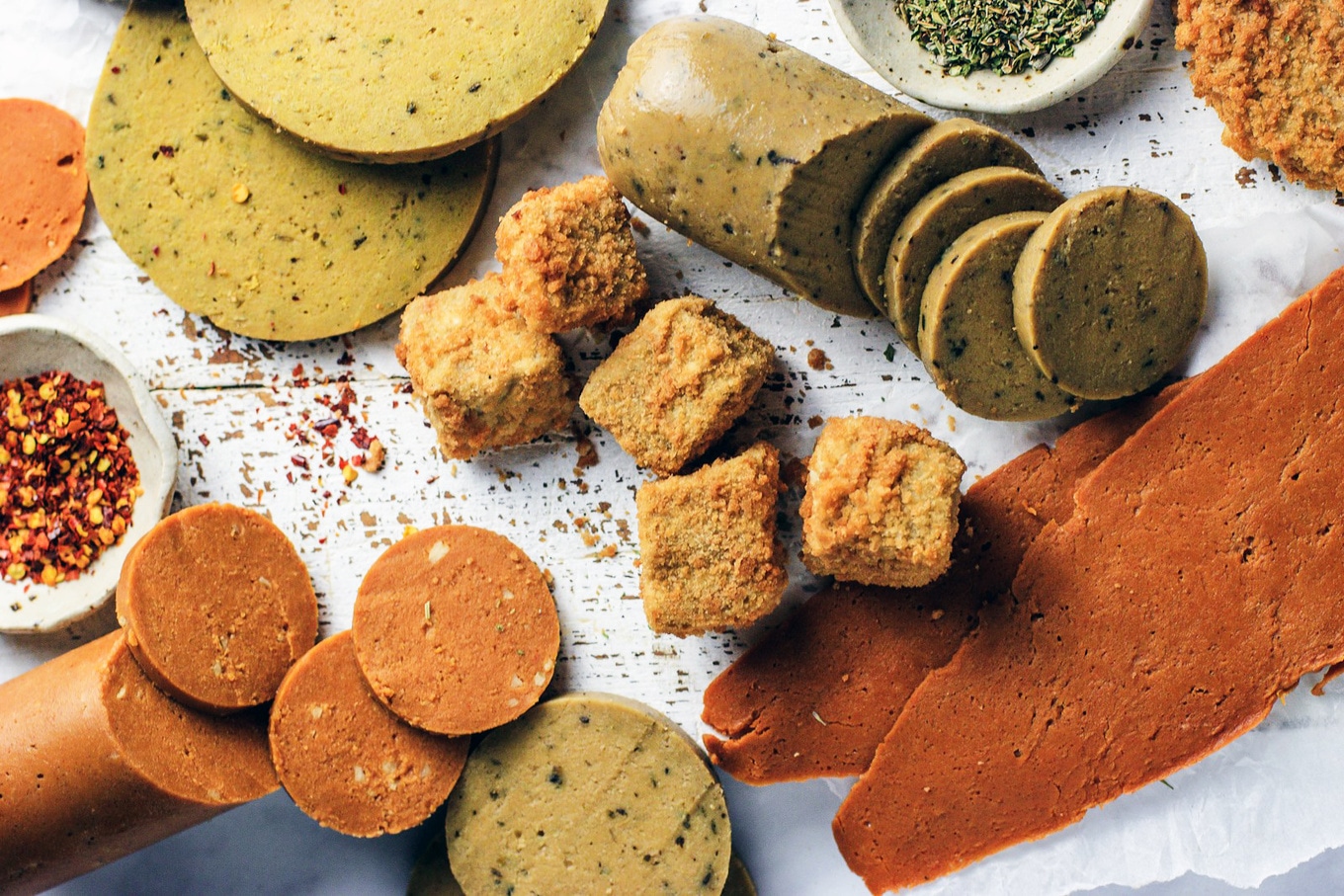 LoveSeitan
LoveSeitan
2Increase protein intake
Protein is crucial for muscle growth and repair, making it a vital component of any weight gain plan. Fernandes recommends aiming for 1.5 to 2.2 grams of protein per kilogram of body weight per day, depending on activity levels and muscle-building goals.
“The plant protein stalwarts like lentils, chickpeas, black beans, and quinoa are veritable protein powerhouses,” Fernandes says. “Adding in some plant-protein-heavy foods like tofu, tempeh, and seitan will make sure you also hit on the full complement of amino acids, too.”
Lahey suggests similar, but slightly lower protein targets of 1.2 to 1.7 grams per kilogram of body weight, pointing to similar plant protein sources and adding to the list edamame—which contains a whopping 17 grams of protein per cup.
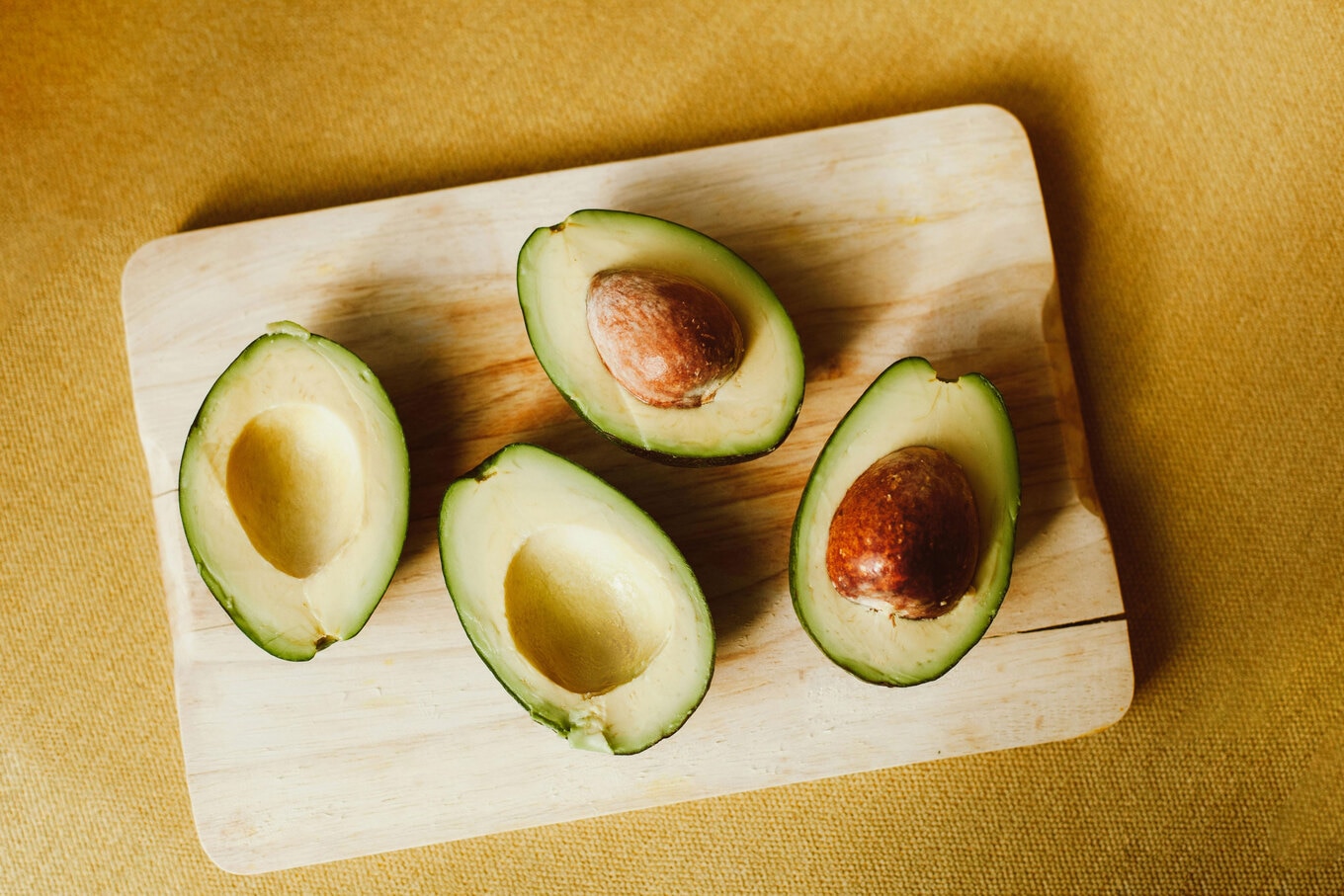 Pexels/RomanOdintsov
Pexels/RomanOdintsov
3Don’t shy away from healthy fats
Fats are a highly concentrated source of calories, providing more than double the energy per gram compared to carbohydrates or proteins. Both experts agree that the inclusion of healthy fats is vital to any vegan weight gain regimen.
“Fats are important for healthy weight gain because they’re calorie-dense and important for the absorption of fat-soluble vitamins,” Fernandes explains. “It’s best to stick to whole foods when you want to up your fat intake: avocados, nuts, and seeds, and the butter made from them, such as almond butter or tahini.”
Lahey suggests using cold-pressed oils such as olive oil and coconut oil to add calories without excessive processing. “You can drizzle these oils on salads or use them in cooking to increase your calorie intake,” Lahey says.
Including healthy fats in every meal can significantly boost your caloric intake without increasing portion sizes.
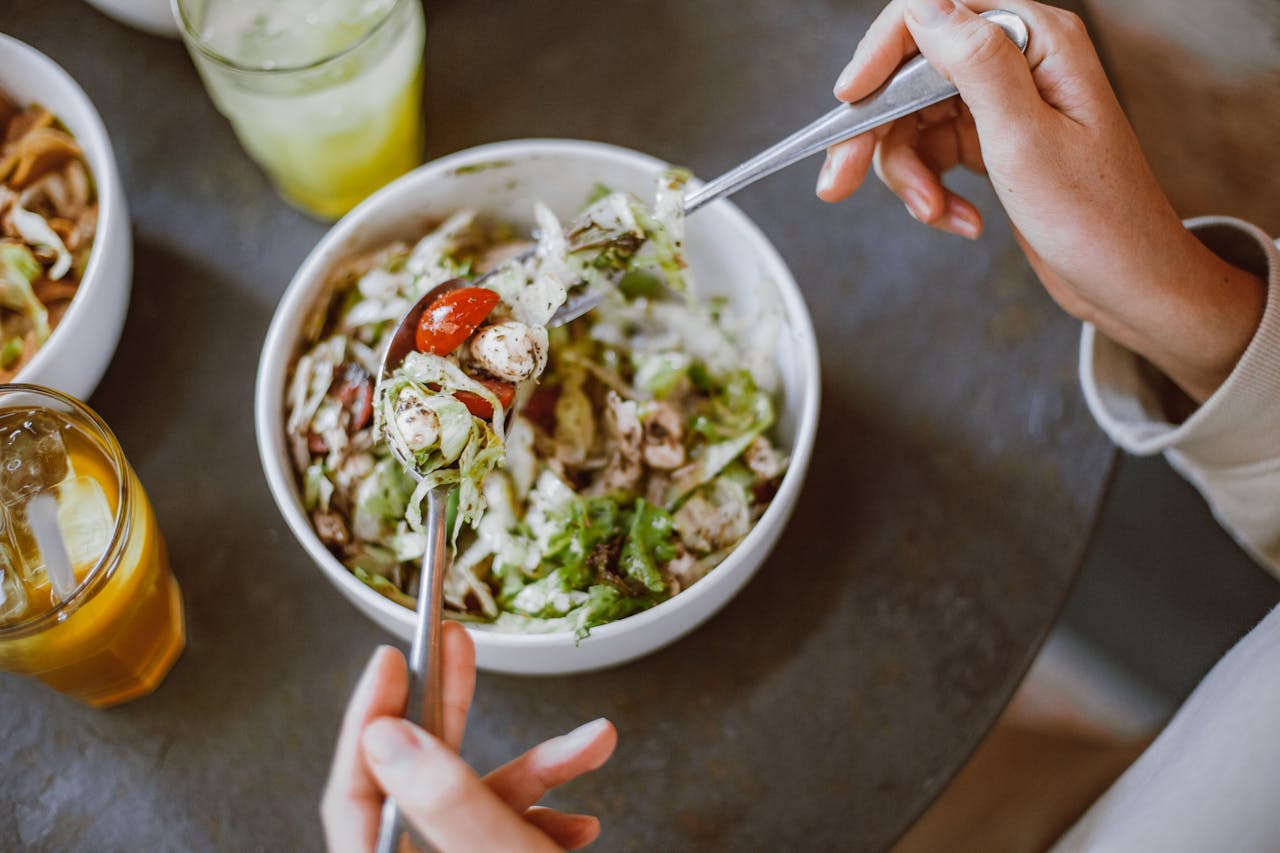
4Avoid common mistakes
Variety is important when it comes to both meal enjoyment and weight gain. “The most common mistake I see is not eating enough calories from a wide variety of sources,” Fernandes explains. “It is easy to succumb to the monotony of meal planning, eating the same things every day, which can result in not gaining weight and likely missing out on vital nutrients.”
Lahey also points out another pitfall. “Relying too much on low-calorie dense and high-fiber vegetables does not compensate for calorie-density foods,” he says.
Instead, both experts recommend focusing on calorie-dense foods and planning meals to ensure a balance of macronutrients and micronutrients.
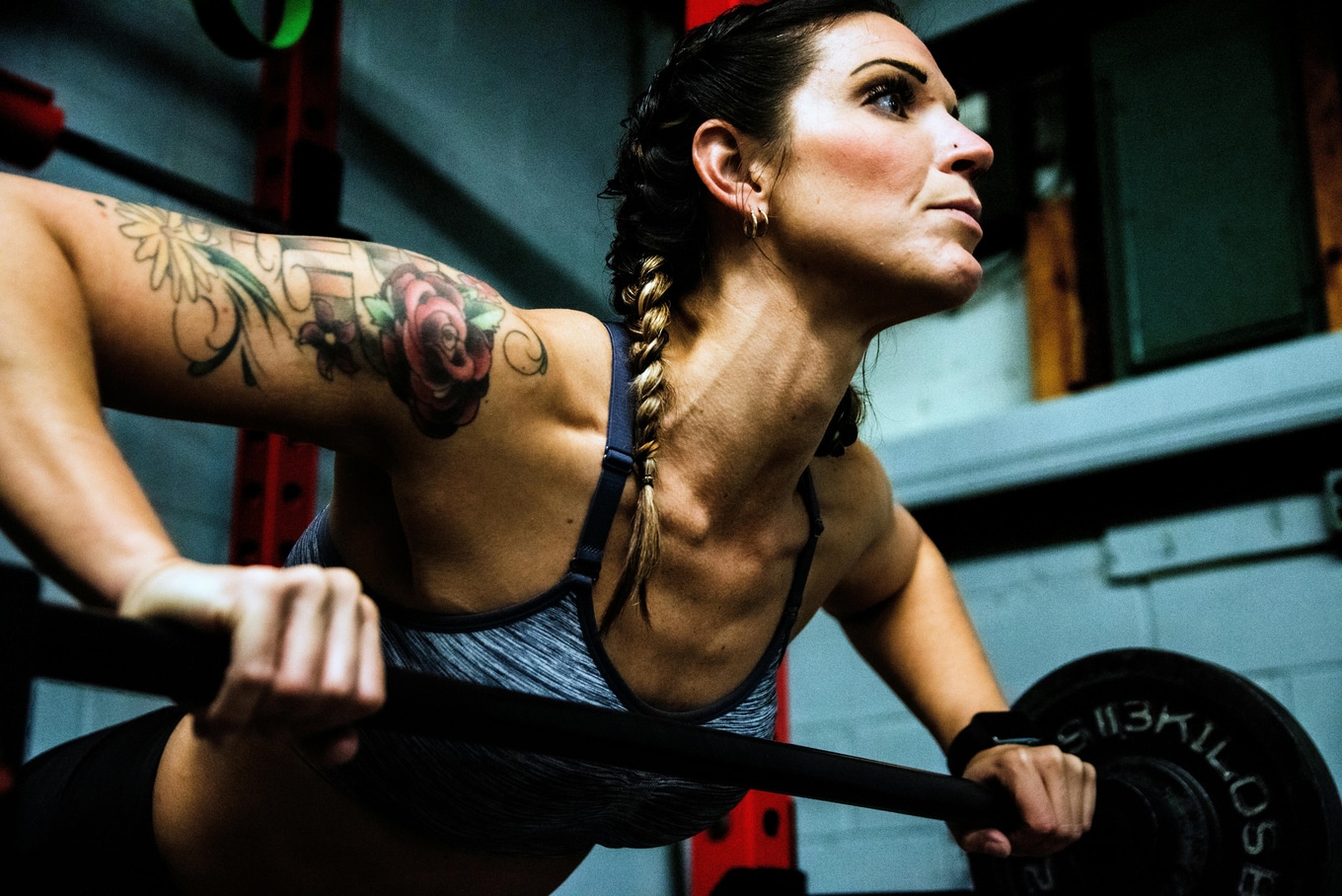 Javon Thorpe/Pexels
Javon Thorpe/Pexels
5Incorporate strength training
Exercise, particularly strength training, should be a part of any weight gain plan to ensure that the added weight is primarily muscle, not fat.
“Exercise should absolutely be part of the plan, especially for vegans, as it’ll help ensure that the weight you do gain is more muscle than fat, which is important for your long-term health and metabolic set point,” Fernandes says.
Lahey recommends focusing on compound movements such as squats, deadlifts, and bench presses.
“By doing too much cardio, you can use a lot of energy, hence reducing the energy that is required to burn in calories,” Lahey explains.
Pairing strength training with proper nutrition helps maximize muscle growth and recovery.
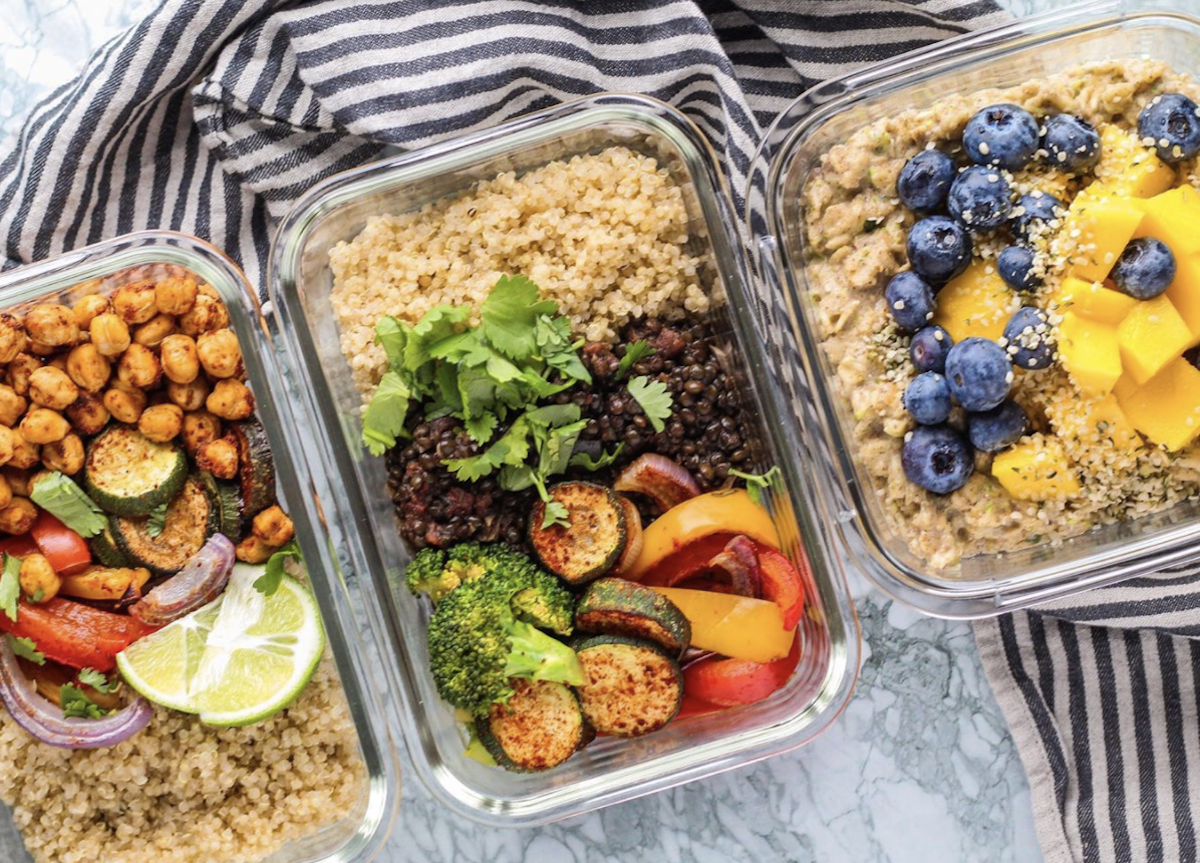
6Plan your meals and snacks
Meal planning is crucial for achieving weight gain on a vegan diet. Both experts agree that planning meals and snacks in advance can help ensure you’re getting enough calories and nutrients throughout the day.
“Mix up your diet as much as possible, throwing a bunch of different grains, legumes, nuts, seeds, and healthy fats into the mix,” Fernandes suggests.
Lahey advises focusing on meal timing, as well. “Post-workout nutrition is essential—eat protein and carbs following your workout as it helps in muscle building and recovery,” he says. Including snacks like trail mix, protein bars, and smoothies between meals can also help boost your calorie intake.
For more plant-based stories like this, read:
JUMP TO ... Latest News | Recipes | Guides | Health | Subscribe

